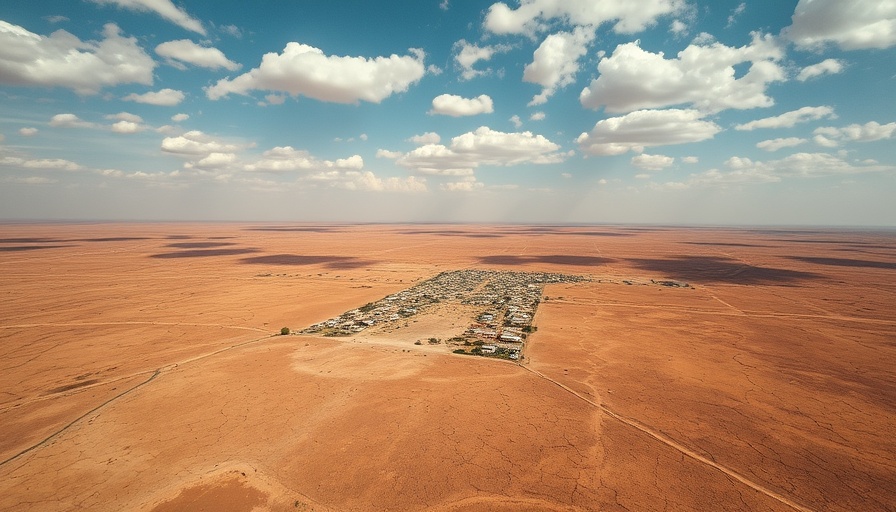
Understanding the Triple Threat: Hunger, Terrorism, and Instability in East Africa
In the heart of East Africa, three interlinked crises – hunger, terrorism, and instability – stir the waters of public concern. These challenges are more than mere headlines; they encapsulate the harsh realities faced by millions across the region, prompting urgent calls for comprehensive strategies from business leaders, policymakers, and investors evaluating Africa's prospects in the global economy.
The Shadow of Chronic Hunger
Recent reports indicate that the specter of hunger affects nearly a quarter of East Africa's population, exacerbated by climatic changes and conflict. This dire situation underscores the critical need for sustainable agricultural practices and foreign investments that prioritize food security. Investment in agriculture not only addresses hunger but also fosters economic stability, positioning East Africa as a significant player in the global food market.
Terrorism: A Looming Threat
Terrorist groups, exploiting food scarcity and political grievances, continue to destabilize regions like Somalia and northern Kenya. The catalyzing impact of terrorism on economies cannot be understated; investor confidence often wanes in the face of insecurity. Therefore, an integrated approach involving international partnerships for counter-terrorism and development is essential for peace and prosperity across the continent.
Political Instability's Ripple Effect
The prevalence of instability is not merely a local issue; it reverberates through Africa's geopolitical landscape. As countries grapple with governance deficits and electoral tensions, the potential for civil unrest grows, threatening to derail progress across various sectors including trade and foreign relations. Investors must pay close attention to these dynamics, as they hold significant implications for market access and regional partnerships.
Future Outlook: A Call for Collaboration
As hunger, terrorism, and instability weave a complex tapestry of challenges, there’s a pressing need for collaborative efforts among nations, local governments, and international bodies. The prospects for sustainable development in East Africa hinge on innovative solutions that integrate social and economic initiatives. Policymakers must prioritize strategic partnerships that enhance food security, bolster security frameworks, and ensure political stability, ultimately paving the way for a resilient African economy.
Business leaders and investors are invited to engage with these transformative policies, as their involvement can catalyze positive change in East Africa. To realize the continent's full potential, it is imperative to address these underlying issues holistically and foster a stable environment conducive to growth.
 Add Row
Add Row  Add
Add 


Write A Comment